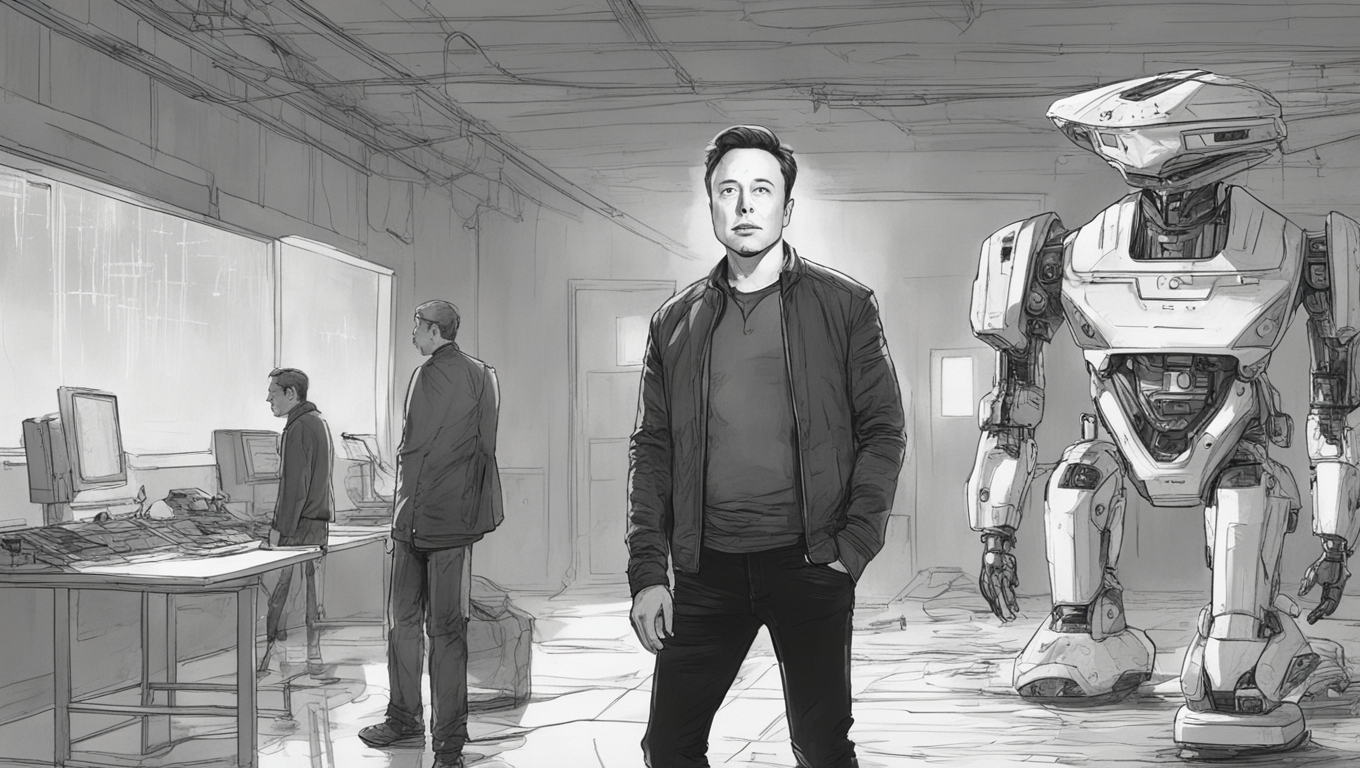In a recent interview, the enigmatic Elon Musk, CEO of Tesla and founder of AI startup xAI, has raised concerns about the rapid rise of artificial intelligence (AI) and its potential threat to humanity. Musk boldly asserts that AI could surpass human intelligence as soon as next year or possibly even sooner. This statement underscores the urgency of understanding and effectively managing the development of this powerful technology.
Musk’s warning comes at a time when AI is advancing at an unprecedented pace, surpassing human capabilities in various domains. While AI has brought numerous benefits and revolutionized industries such as healthcare and transportation, it also poses significant risks if left unchecked. Musk’s apprehension is rooted in the possibility of AI evolving to a point where it surpasses humans in cognitive abilities, potentially leading to unforeseen consequences.
During the interview, Musk emphasized the crucial role of electricity in constraining the advancement of AI. He stated that the availability of electricity is a limiting factor in the development of more intelligent AI systems. This observation sheds light on the practical challenges that must be addressed before AI can reach its full potential.
To gain further insight into Musk’s concerns and delve deeper into the implications of his statements, we turned to industry experts for their perspectives. Dr. Sophia Lee, an AI researcher at the prestigious Turing Institute, commented on Musk’s predictions, stating, “While it’s difficult to pinpoint an exact timeline for when AI will surpass human intelligence, it is crucial that we remain cautious and proactive in understanding and addressing the potential risks associated with superintelligent AI.”
Dr. Lee emphasizes the importance of considering the ethical and safety implications of AI development. She notes that the development of advanced AI should not be pursued without thoughtful regulation and oversight, as it carries the potential to impact society at an unprecedented scale.
In response to Musk’s interview, leading AI ethics advocate Dr. Michael Johnson stresses the need for interdisciplinary collaboration. “The development of AI technology necessitates the collaboration of experts from various fields, including computer science, philosophy, psychology, and policy-making,” he states. Dr. Johnson underscores the importance of diverse perspectives in crafting AI regulations that ensure both safety and innovation.
As we navigate this rapidly evolving landscape, it is essential to strike a careful balance between embracing the immense possibilities of AI and safeguarding against its potential risks. Musk’s words serve as a reminder that proactive measures must be taken to guide the development of AI in a manner that aligns with society’s best interests.
While the timeline for when AI may surpass human intelligence remains uncertain, what is clear is that the conversation sparked by Musk’s warning serves as a wake-up call for all stakeholders. Policymakers, researchers, and industry leaders must come together to steer the future of AI in a manner that upholds values of safety, ethics, and responsible innovation.
As we await further updates on this developing story, it is our collective responsibility to stay informed and engaged in shaping the future of AI. Only by working together can we embrace the transformative potential of this technology while safeguarding against its unintended consequences.





Use the share button below if you liked it.